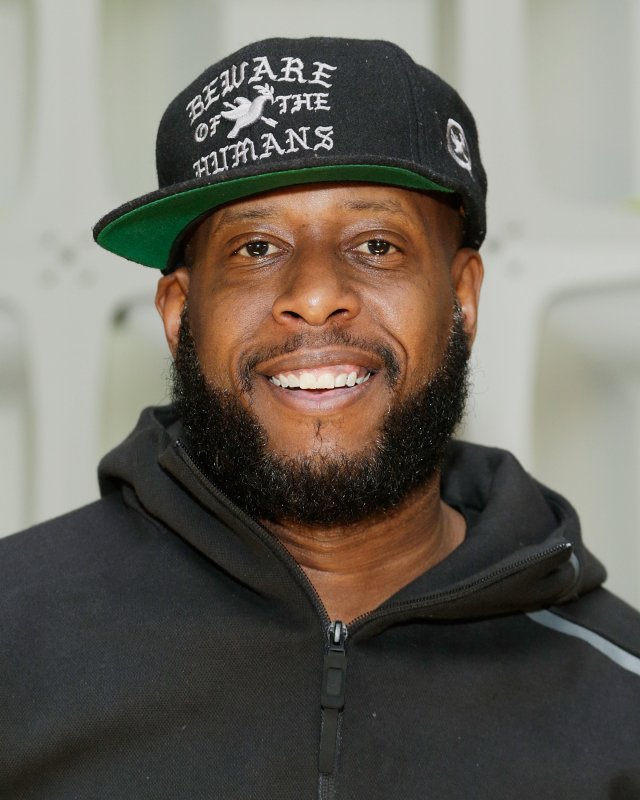
US rapper Talib Kweli refused to cave in to demands from the German Open Source Festival that he denounce the boycott, divestment and sanctions (BDS) movement for Palestinian rights.
As a result, he was disinvited from the July festival’s line-up.
Kweli says he refuses to “censor myself and lie about BDS for a check”.
Germany’s lower house of parliament, the Bundestag, recently passed a resolution equating BDS, which calls for economic and cultural sanctions against Israel over its apartheid-like policies towards Palestinians, with anti-Semitism.
The smear, against a non-violent movement that rejects all forms of racism, prompted protests by Palestinians in the occupied West Bank and the Gaza Strip and denunciation from across Palestinian society.
Modelled on the global solidarity campaign that helped end Apartheid in South Africa, the BDS movement explicitly opposes all forms of bigotry, including anti-Semitism and Islamophobia.
Kweli revealed that he received an email from Philipp Maiburg, artistic director of the festival in the western city of Düsseldorf, highlighting the Bundestag motion and demanding the artist’s position on BDS.
“As you know, there are many discussions around the BDS in Germany and artists which have signed to it,” Maiburg wrote. “There has also been a lot of confusion even with much bigger festivals than ours.
“The new situation now is that since 17 May 2019, there is now an official statement from the German government signed by all parties which, basically, officially declares the statements and methods of the BDS as anti-Semitic.”
Although the Bundestag resolution is nonbinding, Maiburg said: “All administrations of regions or cities, as well as representatives of public institutions, are asked not to give BDS any room or platform.
“As we are also working with public funding we have no other choice than to ask you for an official statement concerning your position towards the BDS.”
Even though they could not be held in violation of any law, festival organisers may fear the pressure and vilification they would face for hosting Kweli amid the McCarthyite anti-Palestinian atmosphere fostered by Germany’s media and elites and further fueled by the Bundestag vote.
The Bundestag resolution calls for withholding public funding from organisations that support the boycott movement or call into question Israel’s claimed “right to exist”.
Several German government departments are sponsoring the festival.
Kweli said he was being asked to “denounce BDS or else not perform” and posted a public response to Maiburg’s letter on his Facebook page.
“By lying and saying that BDS is an anti-Semitic movement, the German government is engaging in fascism and doing a disservice to the German people,” Kweli wrote.
“Boycotting, divesting and sanctioning are peaceful solutions to the crisis that destroys Palestinian homes and lives. It is the opposite of terrorism.
“It worked to make South Africa a fairer and more equal nation and it could work in Israel if its opponents were not so anti-black and anti-Muslim.”
Kweli unapologetically refused to abide by the festival’s demands: “I would like to perform in Germany but I don’t need to. I’d rather be a decent human being and stand up for what’s right than censor myself and lie about BDS for a check.”
He also took to Twitter to affirm his stance after Israel supporters started attacking him.
“The German government is demanding that artists who perform at Open Source Festival, a publicly funded event, denounce BDS as anti-Semitic. BDS is not anti-Semitic. This is fascism. I will not be censored,” Kweli tweeted.
This is not the rapper’s first principled stance for Palestinian rights. In 2014, Kweli canceled plans to perform in Israel after appeals by Palestinian rights campaigners. He has also voiced his support for Palestinian rights through his music.
Last year, Scotland-based band Young Fathers had their show canceled by another German festival for refusing to renounce their support for Palestinian rights.
The band called it a “wrong and deeply unfair decision” to require artists to “distance ourselves from our human rights principles in order for the appearance to go ahead”.
Palestinians subsequently called for a boycott of the Ruhrtriennale festival.
Several artists heeded the call and canceled their appearances.
Faced with the strong show of solidarity for Young Fathers, the festival reversed course and re-invited the band.
[Reprinted from Electronic Intifada.]